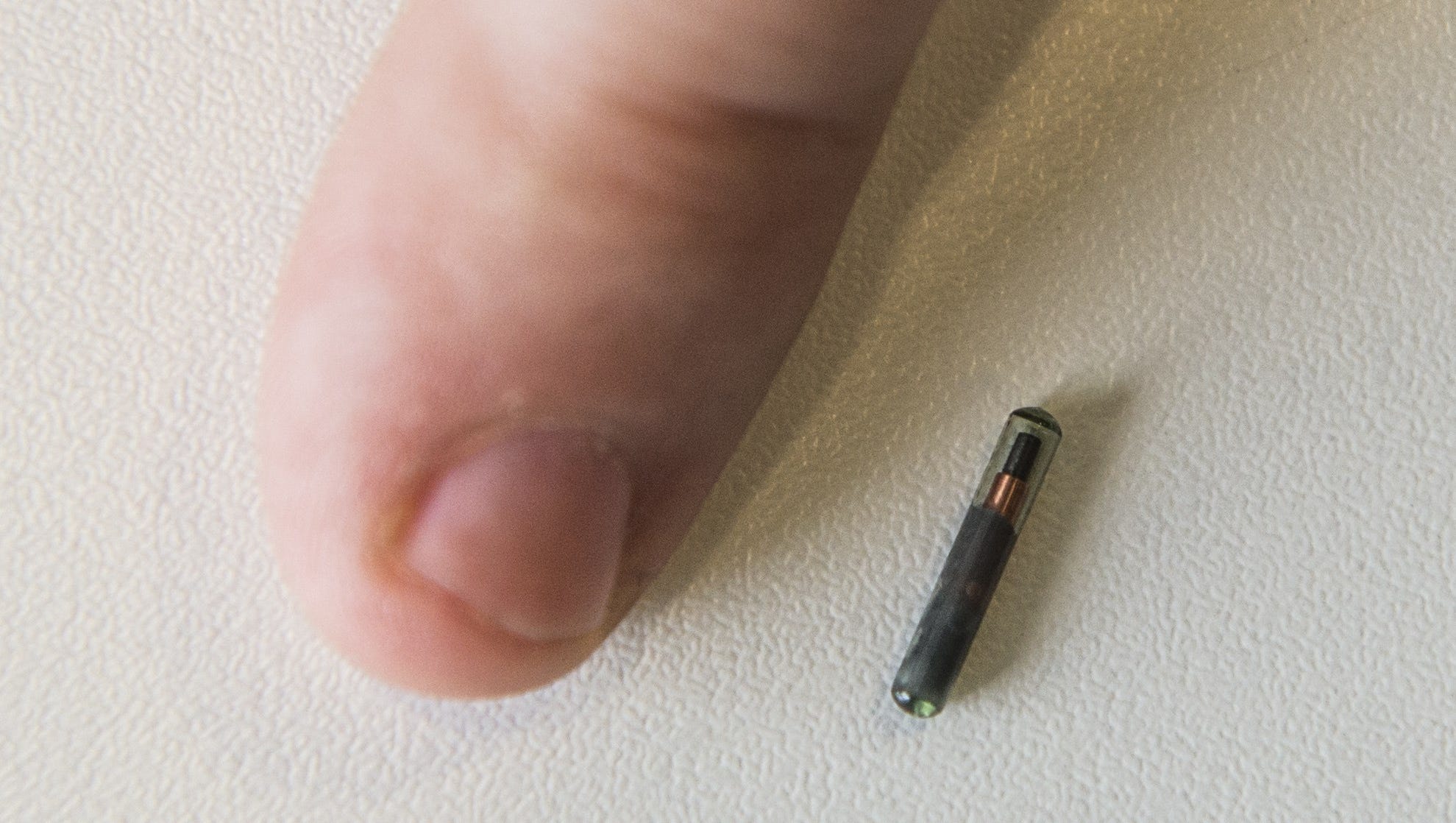Microchip implants popular with pets are catching on with some humans despite the risks. RFID is ostensibly used for tracking objects medicine containers for example but can be in fact used for monitoring human behavior.
 State Lawmaker Wants To Ban Forced Tracking Implants In Humans
State Lawmaker Wants To Ban Forced Tracking Implants In Humans
It claims that the coronavirus pandemic is a cover for a plan to implant trackable microchips and that the Microsoft co-founder Bill Gates is behind it.

Microchip tracking devices for humans. Theyre commonly used for telematics and are injected into our beloved pets for instance so we can find them if they wander off. With a digital ingestion tracking system. Microchips are very useful for tracking things emphasis on things.
They contain a small microchip a bio-safe epoxy resin and a copper antenna wire coil encased in lead-free borosilicate glass. RFID refers to small electronic devices that use a tiny antenna to transfer small amounts of data for identification purposes. A video shared over 27100 times on Facebook implies that the COVID-19 vaccine will contain a tracking microchip that will be injected in the individuals that receive the COVID-19 vaccine once it.
Abilify MyCite aripiprazole tablets with sensor has an ingestible sensor. Human-implantable RFID chips. In humans microchip devices are inserted under the skin between the thumb and index finger.
Microchip implants are generally shaped like cylinders. They have a unique identification number attached to them which is how your information is transmitted to the scanner. Implanting chips in humans has privacy and security implications that go well beyond cameras in public places facial recognition tracking of our locations our driving habits our.
Weve found no evidence to support these. MCHP is a leading provider of microcontroller mixed-signal analog and Flash-IP solutions providing low-risk product development lower total system cost and faster time to market for thousands of diverse customer applications worldwide. Sjöblads business Dsruptive which is based out of a university in southern Sweden approaches microchipping as an extension of the wearable health tracking industry.
In some states its actually illegal to require microchip implantation in humans. In 1998 the British scientist Kevin Warwick known by the moniker Captain Cyborg became the first human to receive an RFID microchip implant. In dogs or humans these RFID microchips only transmit information.
The previous record-holder the Hitachi mu-chip is just 04 x 04. Another option is Followmee a 399 GPS tracking app with around 100000 users according to founder Chris Li. Some ethical and privacy concerns VeriChip a company that makes microchips which can be implanted in humans has sold 7000 chips approximately 2000 of which have been placed in people.
The companys present focus is tagging high-risk patients such as those with diabetes heart conditions or Alzheimers. The Swedish incubator Epicenter began microchipping its employees in 2015 not to track bathroom breaks or productivity but to give them the power to operate printers and more. But since then development has been slow.
Tracking via microchips is also unlikely to occur by the government or. RFID microchips for humans is becoming a thing. For these reasons we recommend that RFID be disfavored for identifying and tracking human.
Food and Drug Administration today approved the first drug in the US. Let the long Orwellian nightmare begin. These types of uses are still being explored and remain difficult to predict.
For one to track you it would also need to receive information from say cell towers so that it could receive the data to. Theyre also inside a bio-inert glass to lessen the risk of your body rejecting it.